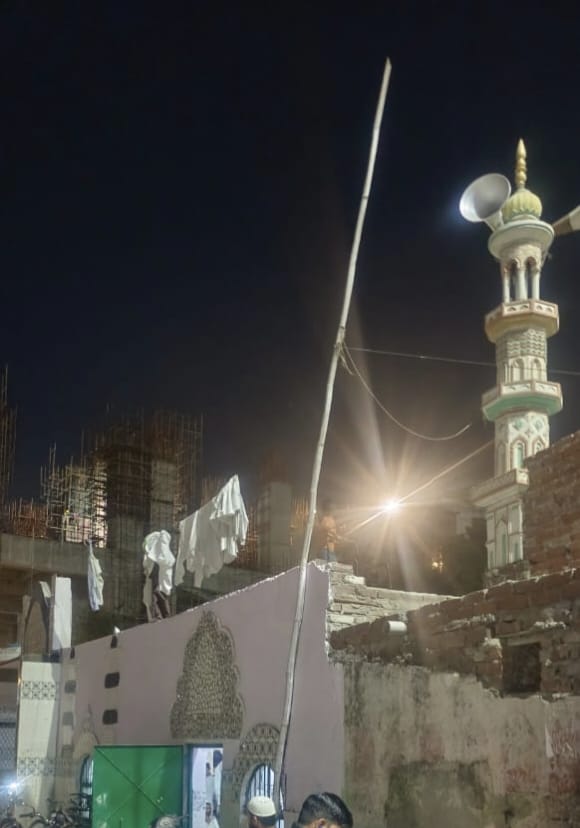New Delhi, April 10: In a significant development for religious freedom in the national capital, the Delhi High Court has intervened to safeguard the Faizyab Masjid and Madarsa, a registered Waqf property located near the ISBT bus depot in Sarai Kale Khan. This action follows a petition filed by the mosque’s caretaker, represented by senior advocate Fuzail Ahmad Ayyubi, seeking urgent intervention to prevent its demolition.
Justice Sachin Datta, presiding over the case, issued notices to the Delhi Development Authority (DDA) and the Delhi Religious Committee in response to the mosque’s plea. The DDA, which claims ownership of the land through acquisition proceedings, has been directed to submit a status report within a week. Furthermore, until the next hearing scheduled for May 8, the respondents are prohibited from taking any action that may harm the mosque.
The issue came to light when local police officials verbally notified the mosque’s administrators and caretaker about imminent demolition plans earlier this month. In response, the caretaker sent letters to the chairman of the Delhi Religious Committee and the Delhi Waqf Board, providing documentation proving the property’s waqf status and its rightful ownership. These communications stressed that the mosque is not encroaching on the land and is a duly registered Waqf property, serving as a place of worship since its establishment.
In the petition submitted to the court, Deen Mohammad, the caretaker of the waqf property, highlighted that the Faizyab Masjid and Madarsa have existed for over 40 years and are officially registered with the Delhi Waqf Board. Despite their legitimate status, the petition revealed that demolition threats were made verbally by local police officials without formal communication or notice. Allegedly, the DDA has requested the Religious Committee to remove the structures, claiming government ownership of the land through an award.
Invoking Article 226 of the Indian Constitution, the petitioner alleged violations of Articles 14, 19, 21, 25, and 30, seeking a writ of mandamus directing the Religious Committee to provide a fair hearing and consider the submitted documents before taking any decision.
The petition highlighted the continuous recognition and use of the waqf property over decades, supported by a detailed timeline of its history since its dedication in 1972. The caretaker emphasized that the waqf property remained untouched even during area redevelopment projects, including the ISBT Sarai Kale Khan redevelopment between 2006 and 2010.
Moreover, the petition noted that the Delhi Waqf Board had issued approvals for electricity connections in 1998 and 2016, affirming the waqf’s legitimacy. The caretaker also raised concerns about the fairness of proceedings before the Religious Committee, citing conflicts of interest due to shared leadership with the Delhi Waqf Board.
In solidarity with the mosque’s administration, a delegation from Jamaat-e-Islami Hind (JIH) visited the Faizyab Mosque to support legal proceedings against the demolition threat. As Delhi’s mosques face targeting by the DDA and the Religious Committee, the case in the Delhi High Court is significant for defending religious rights and property rights of minorities in India.
This legal battle underscores broader concerns about the treatment of waqf properties and the adherence to due process, particularly in matters involving historically significant religious structures. As the judiciary reviews this case, the mosque managing committee hopes for a fair hearing to prevent the demolition of this longstanding religious institution.




